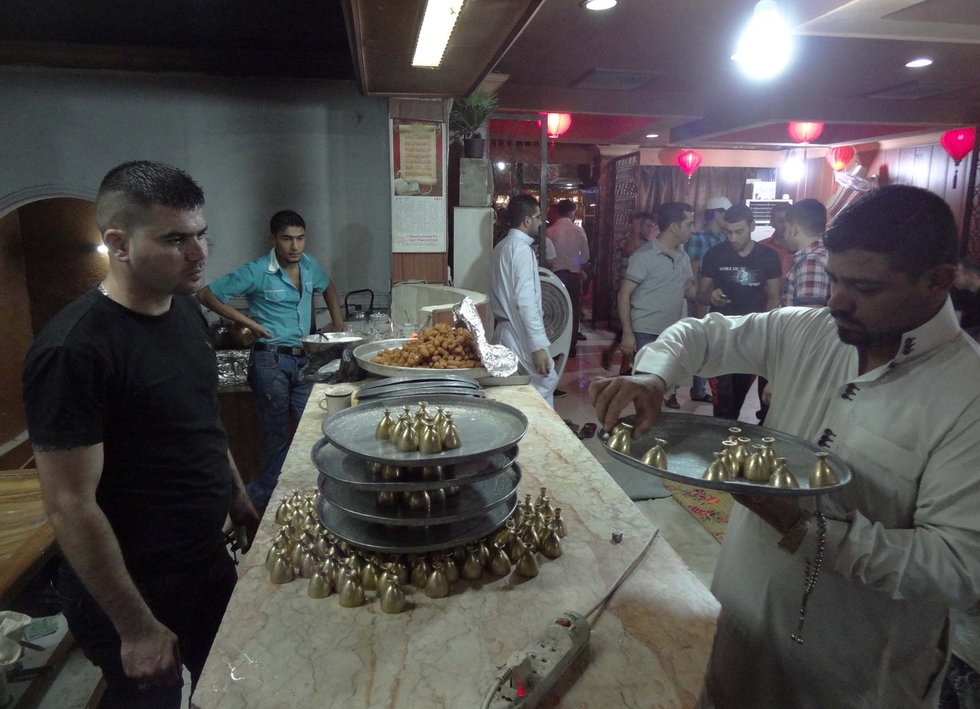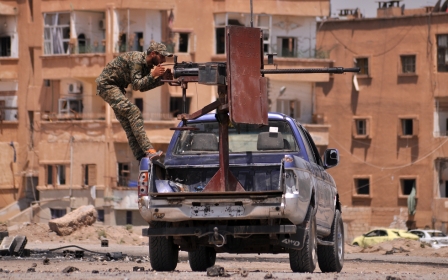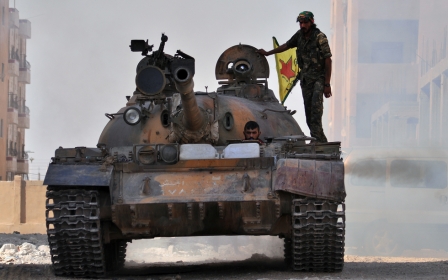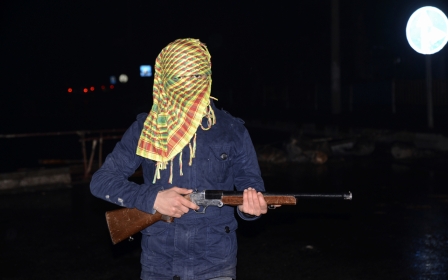Victims of the oppressed: Kurdish militias in Iraq and Syria

Last week, Amnesty International published a scathing report about the Kurdish Democratic Union Party (PYD) committing war crimes against non-Kurdish Syrians in al-Hasaka and al-Raqqa governorates. The PYD, often seen as the Syrian offshoot of Turkey’s PKK terrorists, have had their dirty laundry aired after Amnesty exposed their forced displacement campaign against predominantly Arabs and Turkmens, likely in order to create an ethnically homogenous Kurdish-controlled region in areas of northern and north eastern Syria.
This latest report is among a growing body of literature by human rights organisations, including Human Rights Watch, that expose how Kurdish nationalist groups of all flavours and from all geographies are committing crimes motivated by racist nationalist ideologies. Will the world take action like they did for the Yazidis? Not likely. It is simply much too inconvenient.
Although the United States government has stated that it is looking into reports of Kurdish war crimes in Syria, there is every chance that this could all soon be swept under the rug. After all, America’s Kurdish allies in Iraq have repeatedly committed crimes against their Arab and Turkmen neighbours, and nothing has ever happened. Last winter, Kurdish Peshmerga and Asayish forces refused to allow Arabs displaced in the fighting against the forces of the Islamic State (IS) from returning to their homes, whilst at the same time allowing Kurds to resettle in those areas. This was reported in several areas, particularly Makhmur in northern Iraq.
In January, and in full view of Peshmerga forces, Yazidi militias, themselves only recently victims of IS atrocities, proceeded to attack Iraqi Arab villages like Buhanaya, killing civilians, burning down homes and generally terrorising the populace. There were also separate reports that showed that these same Yazidi terrorists were abducting Iraqi Arab women in order to subject them to the same sexual slavery and mistreatment that Yazidi women were forced to endure when IS forces kidnapped them.
Yazidis, who are a sub-category of the Kurdish people, are somehow immune to Western criticism and outrage. After all, it is inconvenient when those that the Western governments have painted almost as being an endangered species suddenly turn around and commit atrocities and war crimes like IS. The only difference between the two is that Yazidis are a minority who happen to be non-Arab and non-Muslim, trumping even Muslim Kurds, and therefore the kind of minority the West can really get behind.
The Kurdistan Regional Government (KRG), which holds sway over large areas of northern Iraq, has denied any ethnic cleansing in Makhmur and other areas. But last May at the Al Jazeera 9th Annual Forum, I personally challenged Hemin Hawrami, head of foreign relations for Massoud Barzani’s Kurdish Democratic Party (KDP) about this issue, and he said that it would be a simple matter of arranging a visit to the areas in question to prove that the KDP’s story was true. My attempts to have this arranged have gone unanswered for almost half a year, and even international news agencies have reported on the sorry state of Iraqi Arab residents displaced by Kurdish militias.
So what are the root causes behind these Kurdish ethnic cleansing campaigns? Simply put, it is racism, and not merely the more academically sterile phrase of “ethnic conflict”. Even Arabs who are lucky enough to have escaped from the sectarian bloodbaths in other parts of Iraq to KRG-controlled regions complain of outright racism. Muhammad (not his real name), an Arab from Mosul now living in Erbil, told me that he is frequently harassed by Kurdish security forces, particularly officers of the Asayish. “They threaten me with arrest and call me Arab terrorist scum coming to ruin ‘their’ Kurdistan,” Muhammad told me, adding: “Isn’t Erbil a part of Iraq? Am I not Iraqi? Several of my aunts and uncles married Kurds, so my cousins are Kurds…but the politicians see me as a demographic threat."
Muhammad’s view that Kurdish politicians see Arabs as a demographic threat certainly rings true, otherwise there would be no reason to ethnically cleanse entire areas and communities of Arabs and Turkmens in Syria and Iraq. Of course, these racist sentiments are intentionally peddled by the political class in order to distract the Kurdish populace from threats to their own freedom, such as Massoud Barzani refusing to leave his office as President of the KRG. Kurdish journalists and TV stations have been shut down by KRG forces loyal to Barzani, opposition politicians barred from entering Erbil, and yet there is hardly an outrage from the international community.
It is politically inconvenient for Western powers to put real pressure on their Kurdish allies into curtailing their violence against other Kurds, let alone Arabs or Turkmens, because it contradicts their narrative of a squeaky clean oppressed minority.
The Kurds today are freer from state oppression against their identity and language in Syria, Iraq or Turkey - although, again, the international silence on Kurdish rights in Iran is deafening and quite telling. Indeed, the Kurds are now power holders and power players in some areas. Some Kurdish political factions in Syria, Iraq and beyond now feel that the “boot is on the other foot,” and are proceeding to enact a decades-long yearning for bloody vengeance.
For some reason, they are exacting retribution on those who did not harm them, whilst hinting at making deals with their murderers such as the Assad regime in Syria. Moreover, one has to question the veracity of claims that the likes of Barzani are true leaders of the Kurdish people. After all, he fought side by side with Saddam Hussein against Jalal Talabani’s Patriotic Union of Kurdistan, himself backed by Iran. Now that Saddam is gone, both Iraqi Kurdish factions have been making a song and dance about his atrocities against the Kurds, and framing it within a wider anti-Arab discourse.
If there was ever any need for further proof of the danger of nationalism and how it is used to manipulate the masses into supporting the murder of other human beings, it is the misplaced vengeance of some Kurds against non-Kurds as they ignore the despots who have been murdering them both for decades. Kurds, Arabs and Turkmen have suffered enough at the hands of dictators, militia leaders and IS. It's high time that they stop being the cannon fodder of wars they had never ignited.
- Tallha Abdulrazaq is a researcher at the University of Exeter's Strategy & Security Institute, and winner of the Al Jazeera Young Researcher Award. He blogs at thewarjournal.co.uk and tweets from @thewarjournal
The views expressed in this article belong to the author and do not necessarily reflect the editorial policy of Middle East Eye.
Photo: Turkman, Arab and Kurdish residents of the Iraqi city of Kirkuk prepare for playing the "Siniya" or tray game, a tradition during the long evenings of the holy fasting month of Ramadan on 4 August, 2012 (AFP).
New MEE newsletter: Jerusalem Dispatch
Sign up to get the latest insights and analysis on Israel-Palestine, alongside Turkey Unpacked and other MEE newsletters
Middle East Eye delivers independent and unrivalled coverage and analysis of the Middle East, North Africa and beyond. To learn more about republishing this content and the associated fees, please fill out this form. More about MEE can be found here.





